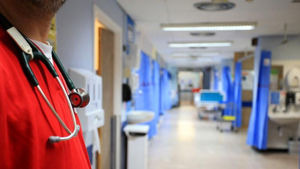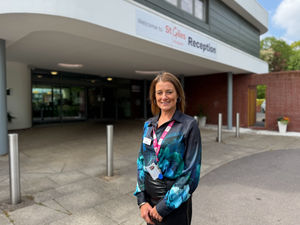‘Significant response’ required to avoid excess cancer deaths
A "significant response" is going to be needed from the NHS to avoid a spike in cancer-related deaths, a leading figure has said.

Last week University College London published research suggesting there could be a 20 per cent rise in people who have been newly-diagnosed with cancer over the next 12 months, with a potential 17,915 additional deaths.
This is namely due to the drop in cancer-related referrals in recent weeks, with the University Hospital Birmingham (UHB) NHS Foundation confirming that referrals are at just 30 per cent of their pre-coronavirus levels.
Speaking at a briefing last week Professor Simon Ball, the chief medical officer for the University Hospital Birmingham NHS Foundation, said he does not expect the recent drop in cancer referrals to continue.
And he added if a rise in deaths is to be avoided, there would need to be a "significant response" from the NHS.
“You will have seen the publication or the trail publication from UCL earlier this week which suggests that without a significant response then significant numbers of excess deaths will arise as a consequence of cancer,” he said.
“And those 16,000 are eminently addressable by an adequate and significant response by the NHS. So that has to be our focus
“It’s really difficult to model at the moment because we don’t actually know how quickly and how high that peak will be, as concerns about Covid-19 reduce down with a reduction in the rates
“So there’s plenty for us to be getting on with at the moment, the significant response that we need to make, but planning more than a few months into the future in terms of the detail as opposed to the strategy is really challenging.”
Professor Ball was speaking at a briefing on the trust’s response to the pandemic, where it was revealed Solihull hospital is to become coronavirus-free and would soon begin accepting more patients for elective surgery.
The trust’s chief operating officer Jonathan Brotherton said it is vital more patients begin to gain access to surgery, so as to ensure not too much of a backlog emerges.
“Well, interestingly the backlog of patients that are waiting for cancer diagnostics or surgery has actually reduced,” he said.
“And the reason that it’s reduced is that the referrals that are coming into the organisation have reduced significantly over the last few weeks.
“Now clearly that is artificially suppressed, and the number of referrals will start to increase over the coming weeks we suspect, but as things stand at the moment our referrals are around about 30 per cent, or even lower in some cases, of the levels that they were pre-Covid.
“And for patients that are on the waiting list who are waiting for an elective surgical procedure on their confirmed cancer or their as yet undiagnosed but suspected cancer, then before Covid compared to where we are now we’ve actually reduced by more than a half the numbers of patients that are waiting for surgery that are classified as cancer.
“Now what we know is that all of those things are artificial at the moment so we don’t know exactly which way that’s going to go, but we expect it to go up in terms of the numbers of people waiting which is why we are desperate to get back online more surgical capacity than we’re currently providing.”




